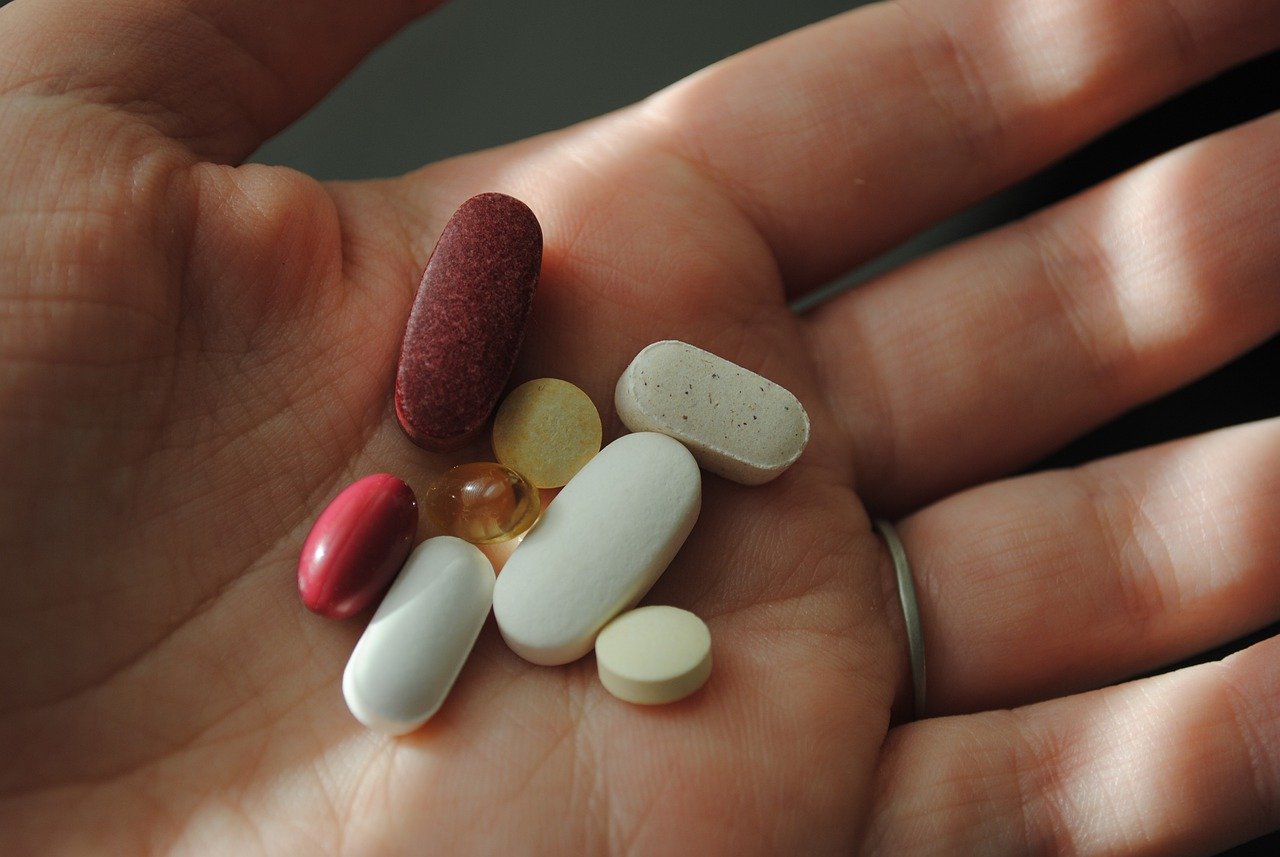Understanding the Health Benefits of Probiotics: Gut Health and Beyond
Maintaining a healthy gut is crucial for overall well-being. The gut plays a significant role in digestion, nutrient absorption, and immune function. A balanced gut microbiome consisting of beneficial bacteria is essential for proper food digestion and the synthesis of essential nutrients. When the gut is in good health, it helps in preventing digestive issues like bloating, constipation, and diarrhea, promoting the smooth functioning of the digestive system and overall comfort.
Moreover, gut health has been linked to mental health, with some studies suggesting that the gut-brain axis plays a role in regulating mood and emotions. A healthy gut microbiome is believed to contribute to the production of neurotransmitters like serotonin, which influences mood and behavior. Furthermore, the gut is a crucial component of the immune system, with a balanced gut flora helping to ward off pathogens and support immune responses. Prioritizing gut health through a balanced diet and lifestyle habits can have far-reaching effects on overall health and well-being.
The Role of Probiotics in Maintaining a Healthy Gut
Probiotics play a crucial role in maintaining a healthy gut by promoting a balance of good bacteria in the digestive system. These live microorganisms, mainly found in certain foods and supplements, help to enhance the gut’s microbiome, which is essential for overall digestion and absorption of nutrients. By replenishing and nurturing the gut with beneficial bacteria, probiotics can support better gastrointestinal health and reduce the occurrence of digestive issues.
Moreover, probiotics aid in regulating bowel movements and can alleviate symptoms of common digestive disorders like irritable bowel syndrome (IBS) and constipation. The presence of a diverse range of probiotic strains can contribute to improved gut motility and the breakdown of food, preventing gastrointestinal discomfort and promoting regularity. Maintaining a balanced gut microbiota through the consumption of probiotics is a key component in supporting optimal digestive function and overall well-being.
How Probiotics Help Improve Digestion
The gut is home to trillions of bacteria that play a crucial role in the digestion process. When the balance of these bacteria is disrupted, it can lead to digestive issues such as bloating, gas, and constipation. Probiotics, which are live bacteria that are beneficial for health, can help restore and maintain this balance in the gut. By introducing good bacteria into the digestive system, probiotics can improve the overall function of the gut and promote better digestion.
Certain strains of probiotics have been studied for their ability to break down food components, reduce inflammation in the gut, and aid in the absorption of nutrients. This can lead to better digestive health and alleviate symptoms of digestive disorders like irritable bowel syndrome (IBS) and inflammatory bowel disease (IBD). Incorporating probiotic-rich foods like yogurt, kimchi, and sauerkraut into the diet or taking probiotic supplements can be beneficial for those looking to improve their digestion.
The Link Between Probiotics and Immune System Function
Maintaining a healthy balance of gut bacteria through the consumption of probiotics plays a crucial role in supporting our immune system. The gut is home to a large portion of our immune cells, and probiotics help regulate the immune response by promoting the growth of beneficial bacteria while inhibiting harmful pathogens. This balance is essential for a strong immune system that can effectively ward off infections and diseases.
Research suggests that probiotics can enhance the production of antibodies, which are key players in our body’s defense mechanism. By stimulating the immune system, probiotics help to recognize and fight off harmful invaders more efficiently. Additionally, probiotics have been shown to reduce inflammation in the gut, which can further support overall immune function. This intricate connection between probiotics and the immune system highlights the importance of maintaining a healthy gut microbiome for optimal immune health.
Probiotics and their Impact on Mental Health
Probiotics have gained attention not only for their role in improving digestive health but also for their potential impact on mental well-being. The gut-brain axis is a complex relationship between the gastrointestinal system and the central nervous system, and research suggests that probiotics may influence this connection. Studies have shown that certain strains of probiotics can help reduce symptoms of anxiety, depression, and stress by modulating the production of neurotransmitters and the release of stress hormones in the body.
Furthermore, the gut microbiome plays a significant role in producing crucial neurotransmitters like serotonin, which is often referred to as the “happy hormone.” By promoting a healthy balance of beneficial bacteria in the gut, probiotics may help support mental health by enhancing the production of these mood-regulating neurotransmitters. Additionally, inflammation in the gut has been linked to the development of mental health disorders, and probiotics have shown potential in reducing gut inflammation, which may indirectly benefit mental well-being.
Probiotics and Inflammation: How They Can Help Reduce Inflammatory Responses
Probiotics have shown promising potential in addressing inflammation within the body. Research suggests that certain strains of probiotics can help reduce inflammatory responses by promoting a healthy balance of gut bacteria. This balance is crucial, as an imbalance in gut flora has been linked to various inflammatory conditions.
By enhancing the integrity of the intestinal lining, probiotics can also help prevent unwanted substances from entering the bloodstream and triggering inflammatory reactions. The interaction between probiotics and the gut microbiome plays a significant role in modulating inflammation throughout the body. As such, incorporating probiotic-rich foods or supplements into one’s diet may offer a natural and effective way to support overall inflammatory health.
Probiotics and Weight Management: Can They Help with Weight Loss?
Studies have suggested that incorporating probiotics into a well-balanced diet and exercise routine may have a positive impact on weight management. Probiotics are live bacteria and yeasts that are often referred to as “good” or “friendly” bacteria, and they are known for their ability to support digestion and nutrient absorption in the gut.
Some research has shown that certain strains of probiotics can help regulate appetite, improve metabolism, and potentially aid in reducing body weight and fat mass. However, it’s important to note that while probiotics may offer some benefits for weight management, they are not a magic solution for weight loss on their own. Consulting with a healthcare provider or a nutritionist to determine the appropriate probiotic strains and doses for your individual needs is recommended for those looking to incorporate probiotics into their weight management plan.
Probiotics and Skin Health: How They Can Improve Skin Conditions
Probiotics play a significant role in promoting healthy skin by supporting the balance of good bacteria in the gut, which can in turn have positive effects on the skin. The digestive system and skin are interconnected through the gut-skin axis, and maintaining a healthy gut flora through the consumption of probiotics can help improve various skin conditions.
Research has shown that probiotics can help improve skin conditions such as acne, eczema, and rosacea by reducing inflammation, strengthening the skin barrier, and promoting overall skin health. By introducing beneficial bacteria to the gut, probiotics can help modulate the immune response and decrease skin sensitivity, leading to clearer and healthier skin.
The Benefits of Probiotics for Women’s Health
Probiotics have gained recognition for their positive impact on women’s health. Research suggests that these beneficial bacteria can help maintain a healthy balance in the gut, which in turn may support overall well-being. By promoting a diverse gut microbiota, probiotics can potentially aid in managing common digestive issues that women may face.
Furthermore, probiotics have been linked to potential benefits for women’s specific health concerns. Some studies indicate that probiotics may play a role in supporting urinary tract health and preventing vaginal infections. Additionally, the use of probiotics during pregnancy and breastfeeding has shown promise in promoting maternal and infant health.
Probiotics for Children: How They Can Support Overall Health
Probiotics play a vital role in supporting children’s overall health by promoting a balanced and diverse gut microbiome. A healthy gut microbiome is essential for proper digestion and absorption of nutrients, as well as for maintaining a strong immune system. Introducing probiotics to children’s diets can help establish a healthy microbial community in their digestive tract, which in turn can support their overall well-being.
In addition to supporting digestion and immunity, probiotics have been shown to have a positive impact on children’s mental health. The gut-brain connection is well-established, and research suggests that a healthy gut microbiome can play a role in regulating mood and behavior. By incorporating probiotics into their daily routine, children may experience improved mood, reduced anxiety, and better cognitive function.
What are probiotics?
Probiotics are live bacteria and yeasts that are good for your health, especially your digestive system.
How do probiotics help improve digestion?
Probiotics help balance the good and bad bacteria in your gut, which can aid in digestion and reduce digestive issues like bloating and constipation.
Can probiotics help boost the immune system in children?
Yes, probiotics have been shown to support the immune system in children by promoting a healthy gut microbiome.
Are probiotics safe for children to consume?
Yes, probiotics are generally safe for children to consume, but it’s always best to consult with a healthcare provider before adding any new supplements to their diet.
Can probiotics help with skin conditions in children?
Probiotics have been shown to improve skin conditions in some children by promoting a healthy balance of bacteria in the gut, which can have a positive effect on skin health.
How can probiotics support overall health in children?
Probiotics can support overall health in children by promoting a healthy gut microbiome, which can lead to improved digestion, immune function, mental health, and more.







